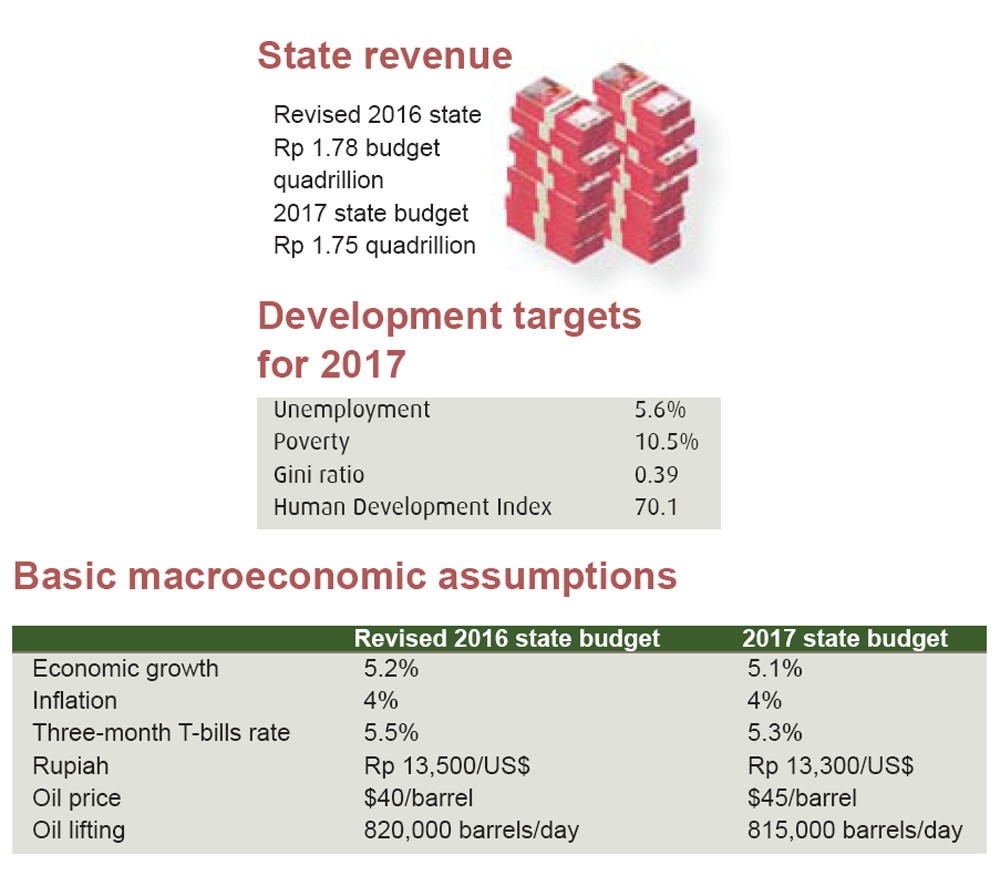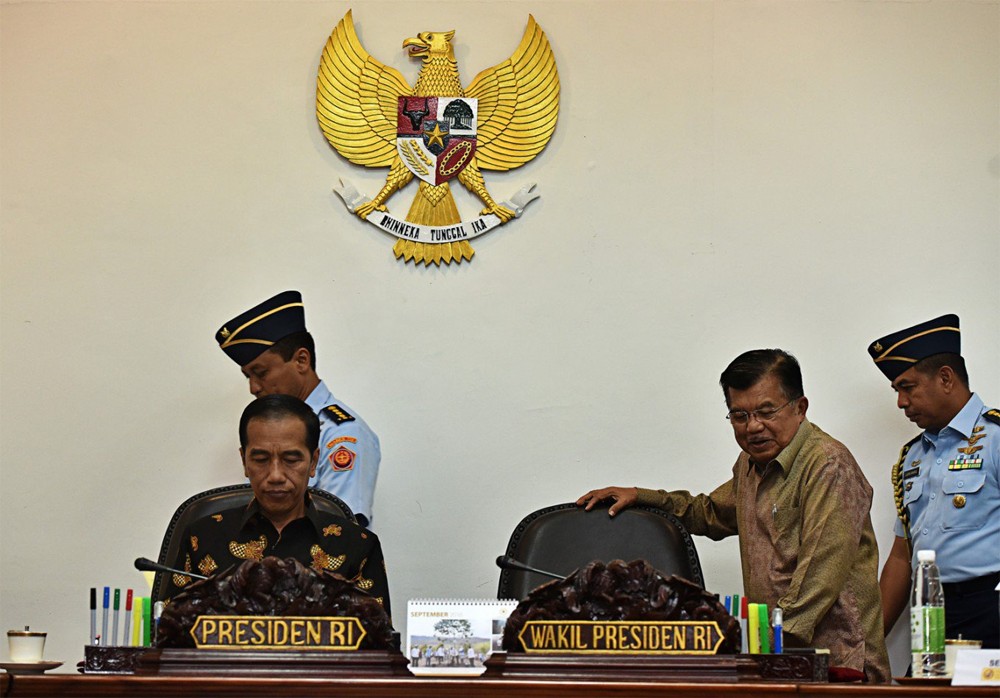Popular Reads
Top Results
Can't find what you're looking for?
View all search resultsPopular Reads
Top Results
Can't find what you're looking for?
View all search resultsGovt to play safe with 2017 state budget
Change text size
Gift Premium Articles
to Anyone
T
he government will soon begin the challenging duty of maintaining economic growth next year after securing on Wednesday the final approval from lawmakers for its 2017 state budget.
President Joko “Jokowi” Widodo described earlier his proposed state budget for next year as “realistic” and “more credible”, with a mission of becoming a reliable fiscal instrument to support poverty eradication, reduce inequality and create more jobs.
In a speech during the House of Representatives’ plenary session to pass the 2017 state budget bill into law, Finance Minister Sri Mulyani Indrawati said next year’s state budget was expected to support the country’s economic growth amid the sluggish global economy and geopolitical risks, dynamics in China’s economy as well as sluggish international trade.
“Macroeconomic assumptions set in the budget reflect a realistic economic condition right now, based on global and national economic [situations],” she said.
In its 2017 budget, the government expects the economy to grow 5.1 percent, lower than its initial target of 5.3 percent, following recalculation during a series of hearings with members of House Commission XI overseeing financial affairs.
Sri Mulyani, who was appointed finance minister in the second Cabinet reshuffle in July, said previously that she did not intend to repeat this year’s budgetary mistakes, which forced the government to carry out two rounds of budget cuts in anticipation of a massive tax revenue shortfall of Rp 219 trillion (US$16.8 billion).
Southeast Asia’s largest economy is gradually recovering from a six-year low economic growth rate of 4.79 percent last year, with an earlier expectation of boosting growth to 5.3 percent in the 2016 state budget.
However, after two rounds of budget cuts, Sri Mulyani has settled for between a 5 and 5.1 percent growth target for this year as a result of reduced government spending that could hinder its multiplier effect on the overall economy.
Despite being realistic, the government expects state revenue of Rp 1.75 quadrillion, higher than the Rp 1.73 quadrillion proposed in the previous plan. Meanwhile, state expenditures are set at Rp 2.08 quadrillion, higher than the Rp 2.07 quadrillion proposed previously.
The calculation will create a deficit at Rp 330.2 trillion next year, or equal to 2.41 percent of the country’s gross domestic product (GDP).
 (-/-)
(-/-)
“We also hope the private sector plays a positive role in economic growth. We’re trying to maximize domestic growth by improving fiscal and monetary policies to trigger confidence,” she said after the plenary session.
As many as 302 out of 560 lawmakers attended Wednesday’s plenary session, with faction leaders conveying their political party’s thoughts and criticism toward the 2017 budget.
The Gerindra Party, as part of the opposition camp, said the government should work to increase state revenues, which should be utilized for more welfare programs, while also continuing to develop infrastructure, improving people’s purchasing power and production.
The Organization for Economic Cooperation and Development (OECD) stated in its recent Indonesia economic surveys that the country’s public spending and taxation were low, even compared with countries at similar levels of development.
“Increasing revenues is a priority, but there remains substantial scope to improve the efficiency and effectiveness of public spending at all levels of government,” it stated.
Separately, Kenta Institute chief economist Eric Sugandi said the central government must also run tighter supervision of the use of budgets allocated for regional administrations, as many of them had failed to spend prudently to help stoke growth in the local economy.
____________________________
To receive comprehensive and earlier access to The Jakarta Post print edition, please subscribe to our epaper through iOS' iTunes, Android's Google Play, Blackberry World or Microsoft's Windows Store. Subscription includes free daily editions of The Nation, The Star Malaysia, the Philippine Daily Inquirer and Asia News.
For print subscription, please contact our call center at (+6221) 5360014 or subscription@thejakartapost.com










